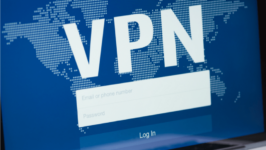What is a VPN?
VPN is use to protect your online identity and your privacy. All the data that you send over the internet will be encrypted. When you get into a web page, you are really accessing a server that can be located anywhere in the world. You are sending and receiving data, and that process is transparent for many people or for your internet operator if you are not using a VPN network. They can access the information you are sending.
In those information packages are included your email, your IP (related to the area where you live) or even other more sensitive information. Are you sure you want everyone to know them?
The best VPN providers encrypts your connection and protects you from prying eyes. It also allows you to skip geographic blocks of web pages and services such as YouTube or NetFlix.
If you are using a VPN network to improve your security and privacy online, you may have noticed that your internet connection speed has been reduced. In some cases much at other times less. Well there may be a few, but we always have some possible solution to improve the connection speed and keep using the VPN.
5 tips to improve the connection speed of your VPN
1. Choose the best server based on the location
Choosing the server is one of the most important points when you connect to a VPN. You have to choose well the server you connect to. If you live in Spain and connect to a server in the United States, your speed may be drastically reduced.
You have to avoid latency, especially if you are playing online. Choose the server that is closest to the country where you live.
2. Do not configure your VPN on the Router
It may seem like a good idea to protect all your devices at the same time, but even if you have a good router, it is possible that your CPU and its processing power are not as great as your mobile or computer can have.
Configure your VPN on each device. In the end, the speed of your connection will always be faster.
3. Uses TCP or UDP
UDP is usually faster than TCP, but you should try both protocols.
TCP needs to establish a connection between two endpoints and then check that the connection is correct. UDP simply sends the data over the internet. Your internet provider may be clocking TCP traffic.
4. Reduce the level of encryption
Your VPn can use different levels of encryption, and the more complex it is, the more it will affect the speed of the VPN. Every bit of information you send has to be encrypted and that is a process that can be very expensive in terms of speed. Consider this if you do not need the best security levels in your connection.
5. Your internet connection and the VPN you use
And in the end, keep in mind that your connection speed will always be limited by the maximum speed you have contracted with your internet operator. Hire more speed.
It will also depend on the VPN provider you are using. If you use a free one: bad. The speed can be very slow.








